Growing up as an LGBTQ individual in Northeast Texas was difficult. When I began to question my orientation, there were no resources. I did not know any other LGBTQ individuals and no one else knew how to help me once I began to come out. It was very scary to be the only LGBTQ person I knew and not know how to meet others in a healthy way.
This is how LGBTQ people can feel when entering residential treatment. It is important for a treatment facility to have resources available for this population, as well as experience and training in cultural competency. It is also important to be mindful and aware of the potential geographical and religious implications (trauma) that LGBTQ individuals have experienced. Growing up in the Southern Baptist Church, I learned that being anything other than heterosexual was frowned upon and even attacked. Once I believed I had found safety in the church, I was able to trust others enough to share my orientation with them, only to be rejected. After working with other LGBTQ individuals in the mental health field, I have come to understand that my experience is not entirely unique. In fact, it has been helpful to identify with these types of issues so that I can relate to our residents even more.
As mental health professionals, it is essential to maintain cultural competency in all aspects. LGBTQ individuals (lesbian, gay, bisexual, transgender, queer, questioning, etc.) have specific needs, and many factors must be considered when working with this broad population, including traumatic situations that are unique to them.
Statistics
The Gay, Lesbian and Straight Education Network (GLSEN) releases a biennial report called The National School Climate Survey, which includes detailed information and statistics about how LGBTQ individuals are affected in U.S. schools. It is important for professionals to be aware of these statistics, as they can help create an understanding of what LGBTQ people experience and how these experiences can lead to potential addiction and mental health issues.
Based on the report, 74.1 percent of LGBTQ students were verbally harassed (i.e., called names or threatened) in the past year because of their sexual orientation, and 55.2 percent because of their gender expression; 36.2 percent were physically harassed (i.e., pushed or shoved) in the past year because of their sexual orientation, and 22.7 percent because of their gender expression; and, 16.5 percent were physically assaulted (i.e., punched, kicked, injured with a weapon) in the past year because of their sexual orientation, and 11.4 percent because of their gender expression. (Kosciw, 2013). In addition, the report also states that the effects of this hostile school climate resulted in lower levels of self-esteem and higher levels of depression in both victims of discrimination from sexual orientation and gender expression. Many individuals would miss quite a bit of school or cease going altogether. (Kosciw, 2013). These can be identified as LGBTQ-specific traumas that heteronormative individuals do not experience. While the survey covers crucial information, it does not mention trauma specifically. However, many of the things that LGBTQ youth and individuals experience are considered traumatic and could result in post-traumatic stress disorder (PTSD), addiction, or other mental health issues.
The report also identifies measures that can be taken to help heal these traumas. Support groups for LGBTQ individuals (i.e., Gay-Straight Alliances or similar); training for educators, staff and professionals; and increased access to appropriate educational information about LGBTQ issues are some of the potential remedies. (Kosciw, 2013). Fortunately, these same interventions can be implemented in residential treatment. Groups or psychoeducational lectures can be offered to residents, and trained, educated, and culturally competent staff can be available when LGBTQ issues arise. When an LGBTQ person (inpatient, residential or outpatient) needs help or support, he or she should have access to the available resources. Additionally, each facility and practitioner in the mental health field would benefit by being more inclusive of, and sensitive to, LGBTQ individuals and issues.
Terms/Definitions
There are many terms and identifiers for people across the entire LGBTQ sexuality and gender spectrums. This is information that will continue to shift and evolve and, as mental health professionals, it is important to stay updated on changes by attending continuing education events and trainings, as well as conducting research. Part of this is understanding that the sexual orientation spectrum is different from the gender spectrum. For example, a transgender person might not identify as gay or lesbian. Labels can be important for some people while others reject them. Words like “queer” and “non-binary” help some individuals find safety in their identity if terms like “male” or “gay” do not fit. Self-determination and self-identity are incredibly important when working with LGBTQ individuals. Professionals should always ask how someone identifies, even if they feel like they are sure. (Review the list of references to find an extensive list of terms provided by the University of Wisconsin-Madison.)
Case Studies
Jason admitted into residential treatment for substance use and co-occurring issues. Jason identifies as a transgender male. He is still early in his transition process and appears female physically. Staff members at the center refuse to refer to Jason as a male because “she has breasts and looks like a woman.” Clinical staff assume Jason’s primary issues stem from being a transgender person. Jason is very offended by this and feels a lot of shame about his identity because of the way the professionals are treating him. Jason ultimately leaves treatment AMA (against medical advice) and is too afraid to enter another residential treatment program due to his identity and fear of being treated similarly again. How could a situation like this be avoided at this facility in the future?
Sally identifies as a lesbian woman and states that she does not know if that label fits her still. She shares for the first time in a support group that she may be questioning her gender identity. The facilitator asks her what pronouns she prefers and she does not yet know the answer, though states that she has never been given the option. She is supported by her peers when sharing. The resident continues to feel more comfortable sharing with peers and other clinical staff, eventually exploring a non-binary gender identity. How was Sally able to feel safe enough to share such personal and sensitive information?
Creating Safety
Appropriate cultural competency for LGBTQ individuals means inclusion. There are many actions a treatment facility can take to help LGBTQ individuals feel welcome, accepted, and safe.
- Intake paperwork should be inclusive.
- Visible symbols of affirmation are displayed (pink triangle, equality symbol, etc.).
- LGBTQ training programs are offered for all staff. (National Child Traumatic Stress Network, 2014).
At Sierra Tucson, we use these methods and hold LGBTQ support groups twice per week for residents interested in attending. Because residents may not feel comfortable disclosing sexual orientation or gender-identity issues in their process groups, our LGBTQ support groups provide an initial safe space where they can begin their healing journey.
References
Kosciw, J. G., Greytak, E. A., Palmer, N. A., & Boesen, M. J. (2014). The 2013 National School Climate Survey: The experiences of lesbian, gay, bisexual and transgender youth in our nation’s schools. New York: GLSEN.
National Child Traumatic Stress Network, Child Sexual Abuse Collaborative Group. (2014). LGBTQ youth and sexual abuse: Information for mental health professionals. Los Angeles, CA, and Durham, NC: National Center for Child Traumatic Stress.
University of Wisconsin-Madison. (2012). Trans, Genderqueer, and Queer Terms Glossary. https://lgbt.wisc.edu/documents/Trans_and_queer_glossary.pdf













